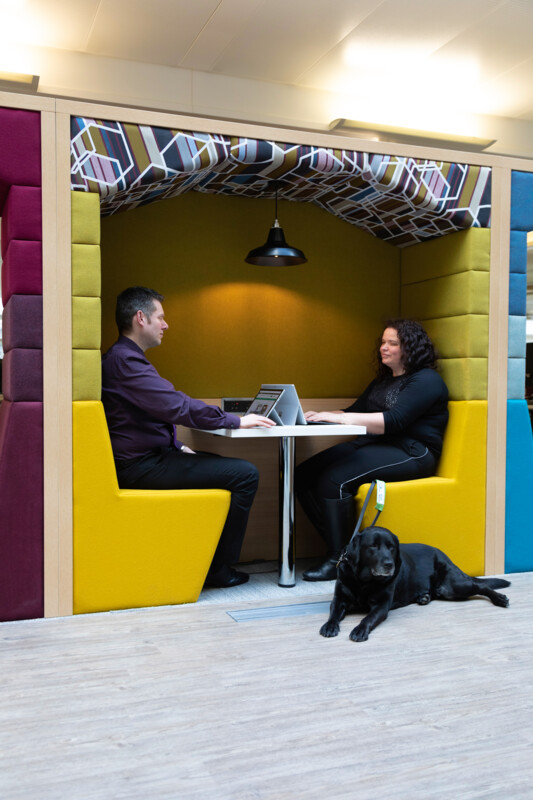To mark the tenth anniversary of Global Accessibility Awareness Day, we're focusing on what colleagues are doing to support each other. Here's what Jane Culkin within our Neurodiversity Network is doing to make our workplace more inclusive for neurodivergent colleagues.

Jane Culkin, Borders and Trade GB Delivery, Bootle
How have you supported your colleagues?
At the beginning of the pandemic, during a time when colleagues were more likely to suffer from anxiety, I set up weekly online autism cafes. These are safe spaces where we invite contributions from colleagues to talk openly about sensory barriers and what support is available.
I was feeling anxious about the situation myself and wanted to give people a forum where they could discuss their feelings with others who might have similar concerns.
I’ve had great feedback about the cafes. We’re like a family, so we don’t always agree with each other but we’re always tolerant and understanding.
What are you proud of?
The work I’ve done to create a better working environment for neurodivergent colleagues because we haven’t always been fully tuned into sensory barriers to work.
This includes designing our regional centres for people who experience sensory overload, working with the Learning Academy to produce a neurodiversity learning product for colleagues and managers and creating a support network of autism advocates.
Autism advocates are trained volunteers who’ll be raising the profile of autism across HMRC by having conversations, sharing their own experiences and encouraging people to learn about neuro divergence.
I also visited the Croydon Regional Centre with some autistic colleagues not long after it opened. They were relieved, it was better than they’d expected, although there were design elements which could be improved. I wrote a report with recommendations and we are working towards making the changes.
Can you give examples of some of the recommendations?
Grey desks instead of bright white, non-reflective surfaces and creating a specific sensory zone away from noisy or smelly areas such as a kitchen.

What impact has this had on colleagues?
Some colleagues told me it’s helped them feel included, others said it made them feel understood.
Sensory issues can be a real barrier to effective working. The changes help create a better, more inclusive workplace for everyone.
What would you change?
I wish I’d done this earlier, it would have meant more outcomes for the design aspects for some of the earlier regional centres.
But I didn’t think I had a voice because I was in a junior position when this started – which just proves even one person can make a huge difference.
What’s next?
We’ve not finished yet. What we’re doing in HMRC is only the start of sensory muted design journey. No other employer has attempted this, we still have a long way to go and we’re constantly learning.
We’ve shared our recommendations within our Inclusive Design Guide, which helps to make sure our new buildings are the very best they can be for everyone who works in them or visits them. HMRC is the first organisation to receive CIC accreditation for inclusive design, so we’re leading the way for other government departments.
Next stop…the whole of the Civil Service!
Come work for us!
If this work sounds interesting, check out all our current vacancies. They’re updated regularly so worth keeping an eye on.
To make sure you don’t miss any of our blog posts, sign up for email alerts